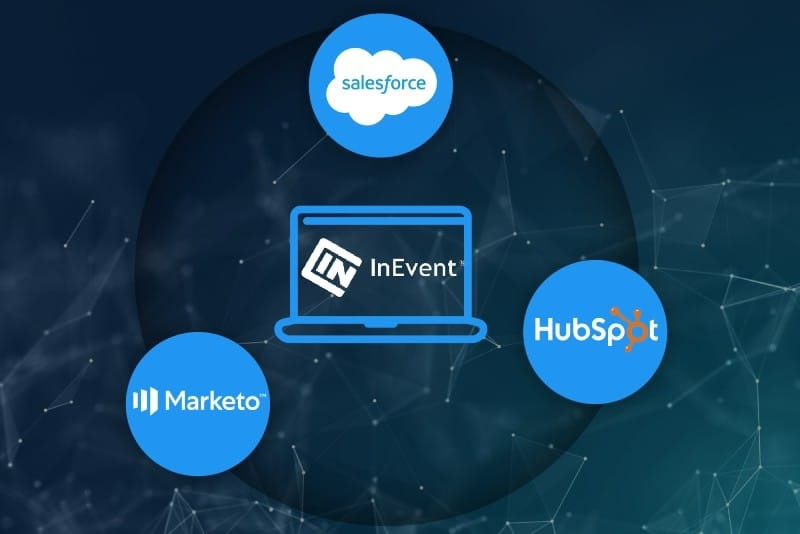In the B2B sector, where sales cycles are often lengthy and involve multiple decision-makers, it’s essential for marketing and sales teams to operate in complete alignment. Integrating a CRM system like Salesforce with a Marketing Automation Platform (MAP) such as HubSpot or Marketo ensures a consistent data flow between both departments. This integration allows businesses to capture lead behavior, qualify them more accurately, and guide them through the buyer journey with personalized touchpoints. It transforms fragmented systems into a unified strategy where marketing can better nurture leads and sales can engage at the right time with relevant insights.
- Aligns sales and marketing goals using real-time data
- Enhances lead management and handover efficiency
- Reduces manual effort through process automation
Integrating Salesforce with HubSpot: Simple, Scalable & Effective –
Salesforce and HubSpot integration is a strong choice for small to mid-sized B2B companies looking for ease of use and robust functionality. HubSpot offers a native integration with Salesforce that supports bi-directional syncing of contacts, deals, tasks, and engagement history. This means marketing teams can build workflows based on CRM activity, while sales teams receive leads that have already been nurtured and scored. The integration also allows the sales team to view HubSpot engagement data directly in Salesforce, which enhances the context of sales conversations. It’s particularly beneficial for B2B companies that need fast implementation without compromising on personalization or reporting.
- Easy setup with native HubSpot-Salesforce sync
- Visibility of marketing engagement in Salesforce
- Strong lead nurturing and scoring capabilities
Salesforce and Marketo: Enterprise-Level B2B Integration –
For larger B2B enterprises managing complex buying journeys, the integration of Salesforce with Marketo offers advanced functionality. Marketo’s powerful automation engine works well with Salesforce’s data depth to support account-based marketing, custom workflows, and intricate lead scoring models. This integration is highly customizable, making it ideal for businesses that require granular control over lead segmentation and campaign influence tracking. Marketo can also sync custom objects with Salesforce, enabling marketers to run campaigns based on detailed data like product usage, event participation, or contract status—something crucial in the B2B world where decisions are often data-driven.
- Supports custom objects and fields for deeper segmentation
- Enables advanced campaign influence tracking and attribution
- Ideal for ABM strategies and complex sales pipelines
Planning a Successful Integration: Key Considerations –
Before connecting Salesforce with HubSpot or Marketo, B2B organizations need to conduct thorough planning. It starts with defining lead lifecycle stages and aligning terminology across both platforms. Mapping the right fields to sync, setting data update rules, and ensuring data quality are essential to prevent sync errors or duplicates. A strong governance plan is critical, especially in large teams, to ensure accountability for integration health and data accuracy. Without this foundational work, even the best tools can result in fragmented insights or inconsistent lead handoff between marketing and sales.
- Define clear lead stages and sync logic
- Prioritize data hygiene and consistency
- Assign ownership for integration maintenance
Long-Term Value: How CRM + MAP Drives B2B Growth –
Once Salesforce and a MAP are properly integrated, the long-term value is significant. Marketing gains access to better behavioral insights, enabling personalized campaigns and optimized spend. Sales, on the other hand, receives qualified, ready-to-convert leads with full engagement history. This leads to faster sales cycles, higher conversion rates, and improved forecasting. Unified reporting across the customer journey also allows leadership teams to make data-driven decisions and justify marketing investments. Ultimately, this integrated stack becomes a central nervous system for any growth-driven B2B company.
- Boosts revenue through better lead conversion
- Improves forecasting and campaign ROI visibility
- Strengthens collaboration between sales and marketing
Conclusion –
Integrating Salesforce with a Marketing Automation Platform like HubSpot or Marketo is more than a technical enhancement—it’s a strategic initiative that aligns marketing and sales efforts, streamlines operations, and drives sustainable growth in the B2B sector. By unifying customer data, automating workflows, and enabling personalized engagement, businesses can enhance lead management, improve conversion rates, and gain valuable insights into customer behavior.

